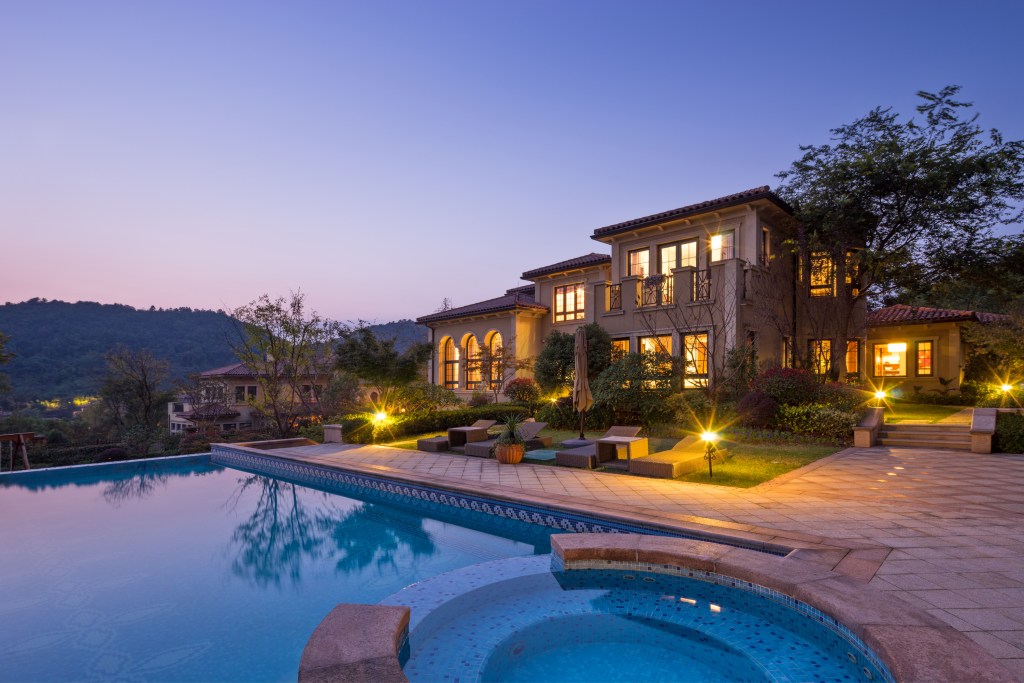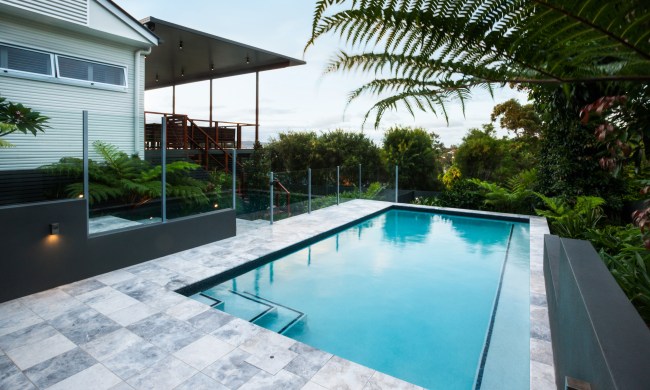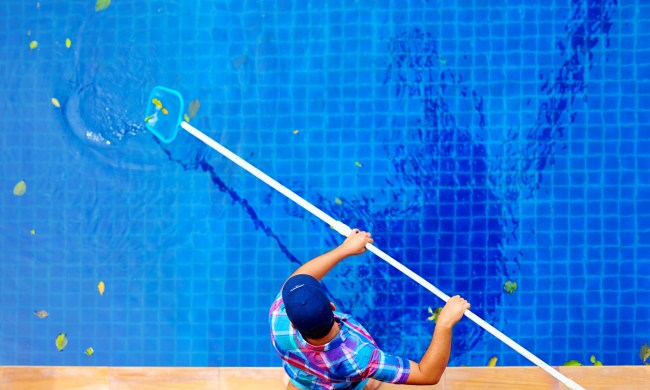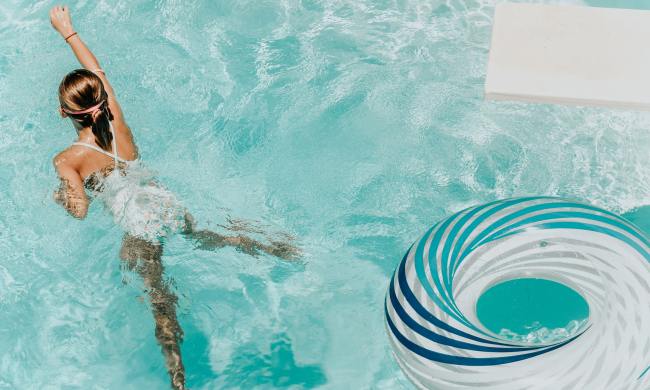Imagine this scenario. It’s 90 degrees outside, the air conditioner is barely functioning, and the public pool is packed with screaming children. Thankfully, you have your own backyard pool and can jump in whenever you want … or, at least, in your fantasies. Thankfully, that fantasy can become a reality. However, before you start inviting your friends over for a backyard bash, there are two options to consider: An above-ground versus in-ground pool.
There are major differences between the two options, such as cost, safety, aesthetics, maintenance, etc. Having either type of pool can be the centerpiece of a grand and luxurious backyard setting, but only if it is the right choice for your location, space, and budget. Let’s dive in (pun intended) to the details and see which pool is right for you:
Above ground is much more affordable
Obviously, the cost will be the main factor in your decision. However, there is much more to the cost than the pool itself. Decking, plumbing, accessories, and landscaping all need to be included in the price.
An in-ground pool is, by far, the most expensive option. The national average is around $30,000, which pays for a 12- by 24-foot concrete pool with a vinyl cover and privacy fence. If you add bonuses like a slide or other amenities, the price can easily jump up thousands of dollars. The reason for the high cost is mainly labor since professionals are required to install an in-ground pool; the digging can take several weeks by itself. An above-ground pool will cost much less; for a 19-foot diameter pool kit, expect to spend between $3,500 and $4,000. Privacy fencing and a vinyl cover will add roughly $1,500 to the cost. Also, installing an above-ground pool is considered a DIY project, saving on labor and time; most kits can be put together in a couple days.
If you want a simple pool for the summer, you can’t get more affordable than above-ground.

In-ground pools look amazing
While beauty is in the eye of the beholder, most people would agree that an in-ground pool is the more attractive option, available in more shapes, sizes, and offering more additional features. Perhaps you want a long lap pool, a round pool for relaxing, or a more traditional rectangular shape; the possibilities are almost endless and are only limited by the owner’s imagination and property boundaries. In-ground pools can also be made of different materials, such as concrete, a vinyl liner, or fiberglass.
On the flip side, an above-ground pool is very limited in size, shape, and depth since they are delivered as kits to your home. You are usually stuck with a round or oval shape, a diameter between 10- to 30-feet, and a depth of 48- to 52-iches. While above-ground pools can look nice in a backyard, you will rarely find someone who would find it as attractive as an in-ground pool.
If you can spare the cash, in-ground pools will make your backyard the envy of your friends.

In-ground pools last longer
If you plan on spending thousands of dollars on a pool, you want it to last. Both pool types will require similar maintenance, such as sweeping the bottom and sides (or using an automatic pool cleaner) and making sure the filter system is working properly. An above-ground pool usually requires less maintenance because of the smaller size.
As far as durability goes, it varies widely. Usually, an in-ground pool is less likely to suffer damage while an above-ground pool is less durable because it is exposed to the elements. However, this comes with a trade-off; if an in-ground pool is damaged, it can be expensive to fix whereas that is not usually the case for an above-ground pool.
No matter which pool you choose, taking proper care of it will lead to a lifespan of decades. However, as usual, there are differences. An in-ground pool, depending on the material, can last up to 50 years, with the average being 20 to 25 years. An above-ground pool, with excellent care and maintenance, will last up to 25 years, with the average being closer to 10 to 15 years. If you want the above-ground pool to last longer, look for a permanent kit rather than a temporary version. If you are not ready for the long-term commitment of an in-ground pool, then an above-ground pool could be a better option.
However, if you want the best durability for your money, despite possibly requiring more maintenance, an in-ground pool is your best option.

Above-ground pools might be safer
Anything in life worth having comes with an inherent risk, and a pool, in-ground or above-ground, is no exception. Regarding the types of pools themselves, an above-ground pool is generally the safer of the two. Because the above-ground pool has walls and the ladder can be removed when not in use, this makes accidental drownings less likely. However, an in-ground pool can still be made safe for families. For all pools, four-sided safety fencing with self-closing locks is recommended, as well as hard covers during the winter. There are other safety precautions that can be taken, such as pool alarms. If you want a 0% chance of anything happening, do not get a pool. Otherwise, there are many precautions homeowners can take to make both types safe and fun.
Verdict
In-ground and above-ground pools each have advantages and disadvantages. Built-in pools can be the centerpiece of an amazing backyard that will be the envy of your entire block, with features and designs only limited by your imagination if you’re prepared to fork over the cash. Above-ground pools are much cheaper but are not as stylish as their in-ground counterparts. However, they can still be accessorized and for any homeowner who wants the fun but not the responsibility of an in-ground pool, they are a good compromise.



